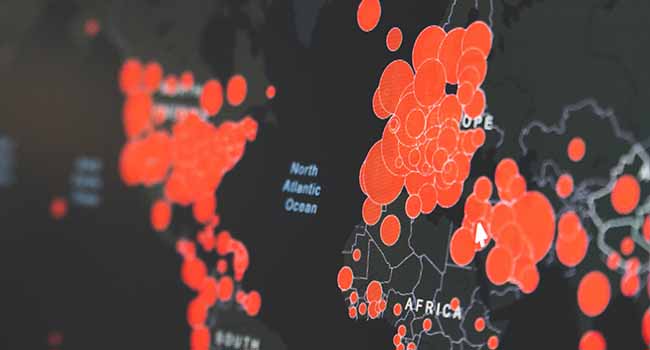 Pope Francis recently praised attachment to one’s own culture and place. He criticized global capitalism with its “consumerist vision of human beings” for its “levelling effect on cultures, diminishing the immense variety which is the heritage of all humanity.”
Pope Francis recently praised attachment to one’s own culture and place. He criticized global capitalism with its “consumerist vision of human beings” for its “levelling effect on cultures, diminishing the immense variety which is the heritage of all humanity.”
But in Canada, nationalism – the idea that one should have particular regard for one’s own country – is unpopular in many circles.
Indeed, Prime Minister Justin Trudeau has a hard time conceiving of any Canadian core identity. He has called for Canada to be the “first post-national state,” whatever that may be.
Globalism, a disdain for borders and an unthinking openness, are held as the virtues of contemporary political and media elites. But there’s still something to be said for the virtue of nationalism and the value of skepticism about globalism.
Canada has committed itself to a policy of freer trade, signing agreements with the United States, Mexico, the European Union and the World Trade Organization.
In return for the right to sell our agricultural and extractive industry products more easily, we allowed our manufacturing sector to be gutted and replaced by cheaper Asian and Mexican imports. The televisions, washers, shoes and shirts we used to make now come overwhelmingly from abroad.
While many call the loss of manufacturing jobs a decent trade-off, the dominance of China’s aggressive economy has caused second thoughts.
As the COVID-19 crisis has shown, open borders mean diseases travel more rapidly and supply chains are endangered.
China controls the production of most of Canada’s medicines. In fact, 80 per cent of the planet’s active pharmaceutical ingredients come from China, which is not a country known for its strict manufacturing safety standards.
What would be the result if we were threatened with a cut in the supply of medicines from China?
That’s not a happy thought.
And then there’s the Chinese stranglehold on rare earths, which are essential in high-tech manufacturing – electric car batteries, cellphones, etc. China ignores the enormous pollution problems from these mines. And it has been spending tremendous amounts to buy up rare earth sites around the world.
The Chinese government held Japan to ransom by withholding exports of these materials when the two countries were at odds in 2010. They could use this trade weapon again.
But whatever threat China poses to Canada (we have already experienced their bullying over our arrest of Huawei executive Meng Wanzhou), we shouldn’t remain indifferent to our dependence on the United States in trade matters and national defence.
Every Canadian government in the past few decades has been aware that our prosperity rests on access to the American market and has been mindful of the dangers of that overreliance.
We’ve been too lax in creating a credible military capable of defending our enormously borders, preferring to nestle under the American shield.
But let’s not forget that, historically, when the U.S. has made territorial claims against Canada, we have tended to end up on the losing side.
Now, in the 21st century, the Yankee eagle is casting a covetous eye on our Arctic passages. In 2019, the administration of President Donald Trump called our claims there “illegitimate.”
Canada would do well to be a little more nationalistic and a lot less naïve.
Gerry Bowler is a senior fellow at the Frontier Centre for Public Policy.
The views, opinions and positions expressed by columnists and contributors are the author’s alone. They do not inherently or expressly reflect the views, opinions and/or positions of our publication.
